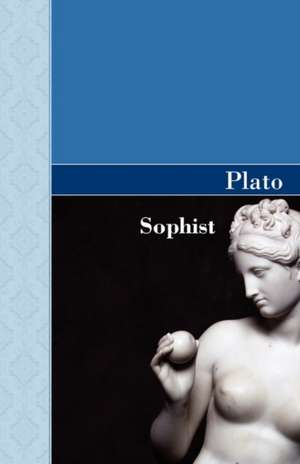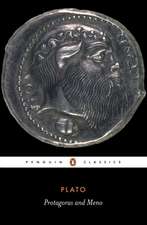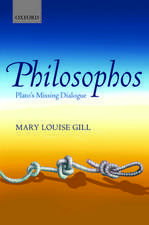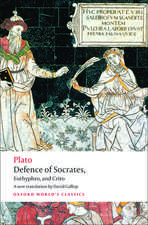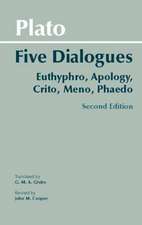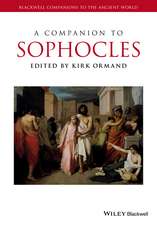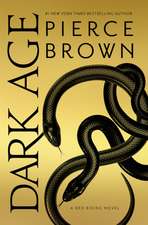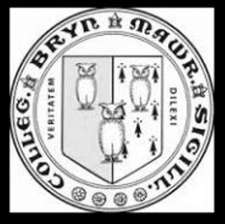Sophist
Autor Platoen Limba Engleză Paperback – 11 noi 2009
Preț: 92.38 lei
Nou
Puncte Express: 139
Preț estimativ în valută:
17.68€ • 18.43$ • 14.69£
17.68€ • 18.43$ • 14.69£
Carte tipărită la comandă
Livrare economică 21 martie-04 aprilie
Preluare comenzi: 021 569.72.76
Specificații
ISBN-13: 9781605125367
ISBN-10: 1605125369
Pagini: 176
Dimensiuni: 140 x 216 x 10 mm
Greutate: 0.23 kg
Editura: Akasha Classics
ISBN-10: 1605125369
Pagini: 176
Dimensiuni: 140 x 216 x 10 mm
Greutate: 0.23 kg
Editura: Akasha Classics
Notă biografică
Plato (428/427 or 424/423 - 348/347 BC) was an Athenian philosopher during the Classical period in Ancient Greece, founder of the Platonist school of thought, and the Academy, the first institution of higher learning in the Western world.
He is widely considered the pivotal figure in the history of Ancient Greek and Western philosophy, along with his teacher, Socrates, and his most famous student, Aristotle.[a] Plato has also often been cited as one of the founders of Western religion and spirituality.[4] The so-called Neoplatonism of philosophers like Plotinus and Porphyry influenced Saint Augustine and thus Christianity. Alfred North Whitehead once noted: "the safest general characterization of the European philosophical tradition is that it consists of a series of footnotes to Plato."[5]
Plato was the innovator of the written dialogue and dialectic forms in philosophy. Plato is also considered the founder of Western political philosophy. His most famous contribution is the theory of Forms known by pure reason, in which Plato presents a solution to the problem of universals known as Platonism (also ambiguously called either Platonic realism or Platonic idealism). He is also the namesake of Platonic love and the Platonic solids.
His own most decisive philosophical influences are usually thought to have been along with Socrates, the pre-Socratics Pythagoras, Heraclitus and Parmenides, although few of his predecessors' works remain extant and much of what we know about these figures today derives from Plato himself.[b] Unlike the work of nearly all of his contemporaries, Plato's entire body of work is believed to have survived intact for over 2,400 years.[7] Although their popularity has fluctuated over the years, the works of Plato have never been without readers since the time they were written
Recenzii
This translation of one of Plato's most challenging dialogues is so unpretentiously honest that it risks undercutting its own significant merits. As far as I can judge, it will prove most helpful not only to students of classical studies and philosophy, but to anybody who is interested in the questions treated by the Sophist . Clarity seems to be the editor and translator's aim, and it is well achieved in: (a) an introduction which without philosophical arm-twisting brings in the views of some modern philosophers on negative and false statement (as inconclusive as Plato's), (b) a select bibliography and a summary of the arguments which students will find useful, and (c) a translation of the text in civilized modern English. Space forbids the adduction of parallel passages. However, I do not hesitate to claim that in terms of accuracy and credible conversational style, the translation will stand comparision with those of A.E. Taylor and F.M. Cornford. --David Rankin, in The Classical Review
